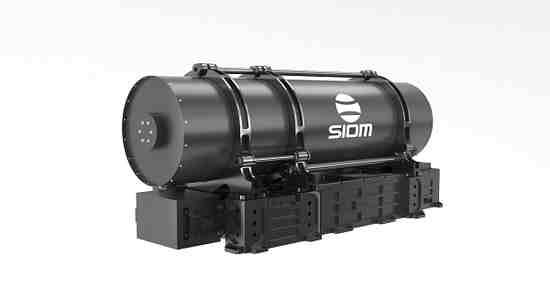


A cold atomic clock has only lost the accuracy equal to one second in 30 million years during two years in orbit on China’s space lab Tiangong-2, according to the Chinese Academy of Sciences (CAS), People’s Daily Online reported on July 26.
The clock is more accurate than most atomic clocks. It is expected to make GPS systems more capable and precise once it’s applied to this technology.
It took over 10 years for scientists from Shanghai Institute of Optics and Fine Mechanics to finally operate the cold atomic clock in space, which was a world first.
They have solved key issues including the physical system of the cold atomic clock in a microgravity environment, the preparation of cold atoms for long-term autonomous operation and the manipulation of laser optical system.
The achievement was published in the international academic journal Nature Communications on July 24, 2018. It is regarded as a milestone in the development of space-based cold atomic clock sensors.
The clock, launched into space together with the Tiangong 2 space lab on September 25, 2016, is the world’s first cold atomic clock that works in space, and has completed all scheduled scientific goals.
 Fire brigade in Shanghai holds group wedding
Fire brigade in Shanghai holds group wedding Tourists enjoy ice sculptures in Datan Town, north China
Tourists enjoy ice sculptures in Datan Town, north China Sunset scenery of Dayan Pagoda in Xi'an
Sunset scenery of Dayan Pagoda in Xi'an Tourists have fun at scenic spot in Nanlong Town, NW China
Tourists have fun at scenic spot in Nanlong Town, NW China Harbin attracts tourists by making best use of ice in winter
Harbin attracts tourists by making best use of ice in winter In pics: FIS Alpine Ski Women's World Cup Slalom
In pics: FIS Alpine Ski Women's World Cup Slalom Black-necked cranes rest at reservoir in Lhunzhub County, Lhasa
Black-necked cranes rest at reservoir in Lhunzhub County, Lhasa China's FAST telescope will be available to foreign scientists in April
China's FAST telescope will be available to foreign scientists in April "She power" plays indispensable role in poverty alleviation
"She power" plays indispensable role in poverty alleviation Top 10 world news events of People's Daily in 2020
Top 10 world news events of People's Daily in 2020 Top 10 China news events of People's Daily in 2020
Top 10 China news events of People's Daily in 2020 Top 10 media buzzwords of 2020
Top 10 media buzzwords of 2020 Year-ender:10 major tourism stories of 2020
Year-ender:10 major tourism stories of 2020 No interference in Venezuelan issues
No interference in Venezuelan issues
 Biz prepares for trade spat
Biz prepares for trade spat
 Broadcasting Continent
Broadcasting Continent Australia wins Chinese CEOs as US loses
Australia wins Chinese CEOs as US loses